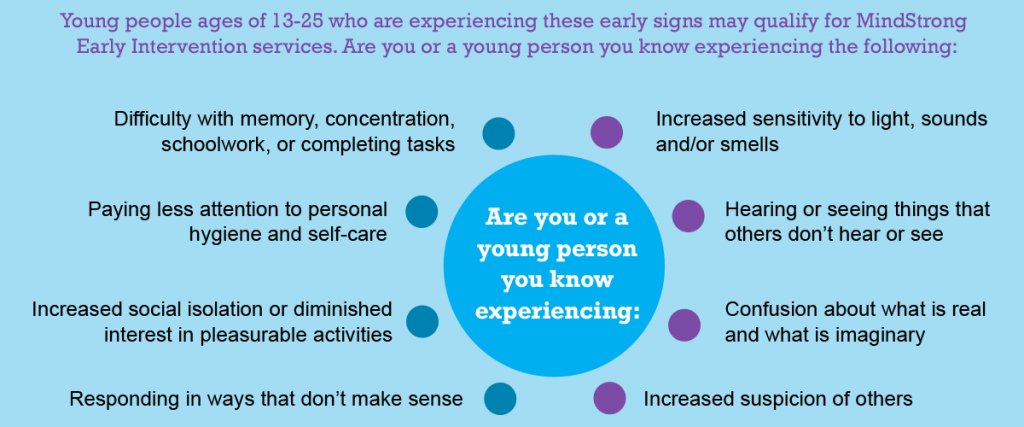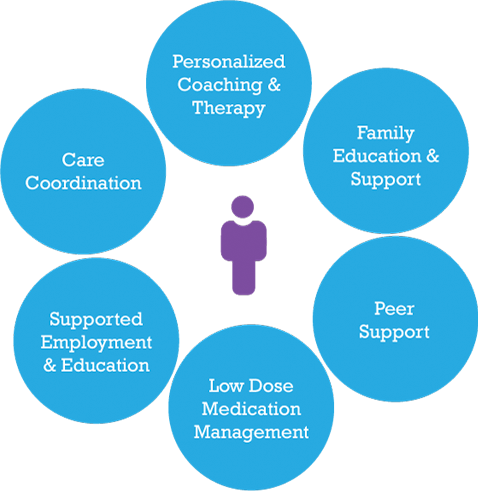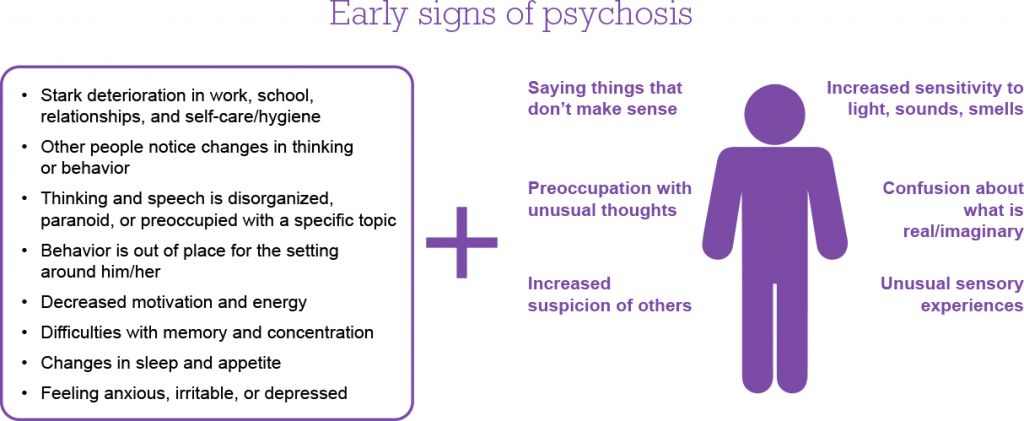Thresholds Outpatient and Intensive Outpatient Services are person-centered, trauma-informed, and evidence-based.
Our model is to bring a comprehensive suite of services to wherever our clients are.
Thresholds provides mental health crisis response in Chicago through two programs – our Living Room and our Mobile Crisis Response Team.
The Thresholds Workforce Development Department offers workshops, conferences and other training opportunities.
Thresholds offers groundbreaking programs for adolescents, young adults, families, young mothers, and their children.
Thresholds offers services designed to integrate mental health, substance use, and primary care treatment.
Our mission is to provide data to support decision-making meant to improve quality of care, optimize health outcomes, and lower costs.
The Centers provide a wide range of mental health and substance use treatment services to their immediate surrounding communities in Ravenswood and McHenry County.
The only program of its kind in Illinois, offering services for persons with mental illnesses who are deaf or hard-of-hearing.
Thresholds’ Peer Success program is operated by consumers – those who have a lived experience of mental illness.
Thresholds is the largest provider of supported housing in Illinois and provides comprehensive services for persons experiencing homelessness.
Thresholds provides clients with the support and services needed to achieve independence to class members of the Williams Consent Decree.
Thresholds offers services to members of the armed forces who are experiencing PTSD, trauma, substance use disorders, and much more.
Thresholds’ Employment Specialists place clients in jobs of their choice to create real economic independence.
The Thresholds Creative Arts Therapy team, made up of a diverse range of trained art therapists, provides our clients tools for wellness.
MindStrong is a multistep care program that uses a multidisciplinary, evidence-informed approach to identify and treat young people at risk for serious mental health challenges or emerging psychosis symptoms. Early assessment and services are key in the return of young people to a healthy and fulfilling life.
For intake, reach out to us at 773.432.6555 or YoungAdult@thresholds.org.
MindStrong Early Intervention is a comprehensive program for young people at risk of developing serious mental health challenges. The Early Intervention team works with 13 – 25 year-olds to provide therapy across a multistep care model, tailoring supports to each individual. Through partnerships with the Chicago Early Intervention Network at Northwestern University and Rush Medical School, and many others, Thresholds provides innovative services to help young people and their families understand symptoms and receive the best-fit treatment at the earliest stage.
MindStrong First Episode is designed for 14 – 40 year-olds who have experienced symptoms of psychosis for the first time within the last 18 months. The First Episode Program utilizes the state-of-the-art Coordinated Specialty Care model, and is part of the network of providers across Illinois. Learn more about the MindStrong approach below, educate yourself about the signs of psychosis and check out our training and research initiatives to see why early intervention is so important. The MindStrong Programs are located on the North side of Chicago and in Westmont, IL.
Check our list of trainings, symposia, research studies, and publications, and our Youth and Young Adult Research site. We also encourage you to utilize these additional resources to learn more about early intervention:
Mindstrong Early Intervention aims to:
Take this survey to see if you or someone you know is a good fit for MindStrong Early Intervention Services . Most young people who show signs of mental health challenges will not develop a serious mental health condition. Early intervention can help prevent struggles and enable a young person to have a full and satisfying life. The sooner signs are recognized and a young person gets help, the better! MindStrong Early Intervention is a Stepped Care Model for assessing and addressing emerging mental health needs. This means that we use the latest scientific screening tools to match young people with appropriate services.

The sooner signs are recognized and a young person gets help, the better!
MindStrong Early Intervention is a Stepped Care Model for assessing and addressing emerging mental health needs. This means that we use the latest scientific screening tools to match young people with appropriate services.
| Step | Care Approach |
|---|---|
| Step 1: Latent Risk | Education and community outreach Goal is to increase awareness of signs of early mental health |
| Step 2: At-Risk | Some risk identified (e.g., relative with serious mental health condition or attenuated symptoms), but no distress Screening, monitoring and education |
| Step 3: High Risk | Assessment, identification of symptoms and distress |
| Step 4: First Episode | MindStrong Early Intervention Services and MindStrong First Episode Psychosis Services, which are intensive tailored, and multidisciplinary |
Psychosis is a complex medical condition in which changes in the brain make it difficult for a person to tell what is real and what isn’t. Psychosis can go undetected until the lives of a person and their family are substantially disrupted. Early psychosis experiences tend to be intermittent or happen gradually over a period of many months. If you or a loved one identify with the experiences below, seek out treatment immediately. The earlier people experiencing signs of psychosis get help, the better the outcomes.
Psychosis affects 3 in every 100 people, regardless of race, ethnicity, sex, or socioeconomic status. Below is some information on the symptoms and early signs of psychosis.
Psychosis symptoms typically include:


MindStrong partners with young people and families through a multidisciplinary team-based approach that integrates key elements from the most respected and scientifically validated early intervention practices. We utilize strategies that not only have the strongest evidence base, but are creative and fun approaches to achieve goals. Instead of focusing solely on treating symptoms, we focus on addressing the impacts of symptoms on school, work, relationships, independence, & identity development. We’re working to teach young people, families, and greater Chicagoland how to recognize early signs of serious mental health challenges.
Rapid assessment and individualized care planning: We work with you to develop a shared understanding of the difficulties you or your family member is having, and then we make a plan together based on your specific situation, needs and desires.
Individual therapy and coaching: Individual support and guidance can help you to make sense of the experience you are having, and can help you learn how to manage symptoms, anticipate future difficulties, and to plan ahead for those situations. In addition, we will help you to build on your own strengths and abilities and to move toward the future you envision for yourself.
Family education and multi-family groups: Many family members are confused and unsure what to do when a loved one develops concerning symptoms. We provide information to help you understand what is happening for your young family member, and to give you some guidance about how you can support him or her, and maintain your family equilibrium. Some families find the support of other families who are going through similar experiences to be invaluable; families learn together how to solve common problems faced by those struggling with mental health issues in the family.
Supported employment and supported education: Sudden mental health challenges can cause a disruption in education and/or employment. The quicker you can get back on track with school and/or work, the less likely this disruption derails your future plans– and the better it is for your mental health. Our specialists provide support in and out of the office to help you succeed with your education and employment goals.
Medication education and monitoring: Our psychiatrist is knowledgeable about the most up-to-date research in use of medication for early mental health symptoms and early psychosis, and will help you and your family to understand your choices and to make informed decisions about medication. We take a “start low and go slow” approach, where we start at low doses of medication first, for those who could benefit from medication.
Peer support: It can be helpful for a young person who is experiencing early mental health symptoms for the first time to receive support from someone who has first-hand experience, and to find that you are not alone! We provide opportunities for you to connect with peers who have experienced and overcome similar challenges.
Care coordination: It is common for people and their families to feel overwhelmed and without a clear direction. We help you weave your services together in a way that clears a path toward your individual goals.
LOOKING FOR SERVICES?
Don’t wait! The sooner action is taken for people experiencing emerging signs of serious mental illnesses, the better the outcomes. Contact the Thresholds Youth & Young Adult Services at 773.432.6555 or YoungAdult@thresholds.org.
Training and Technical Assistance
MindStrong provides educational workshops to community providers, employers, schools, parent/youth groups, and many others.
Thresholds Youth & Young Adult Services Leadership also provides individualized training and consultation to providers and systems nationwide. To learn more, check out our Provider Training and Consultation page or contact Marc Fagan, Psy.D.
Research and Evaluation
Driving principles for our Thresholds Youth & Young Adult Services include:
MindStrong First Episode Psychosis Resources
MindStrong First Episode is an evidence-based Coordinated Specialty Care approach. MindStrong’s design is based on the following Coordinated Specialty Care programs:
Thresholds was selected to participate in the following national learning communities and workgroups:
MindStrong Early Intervention Resources: